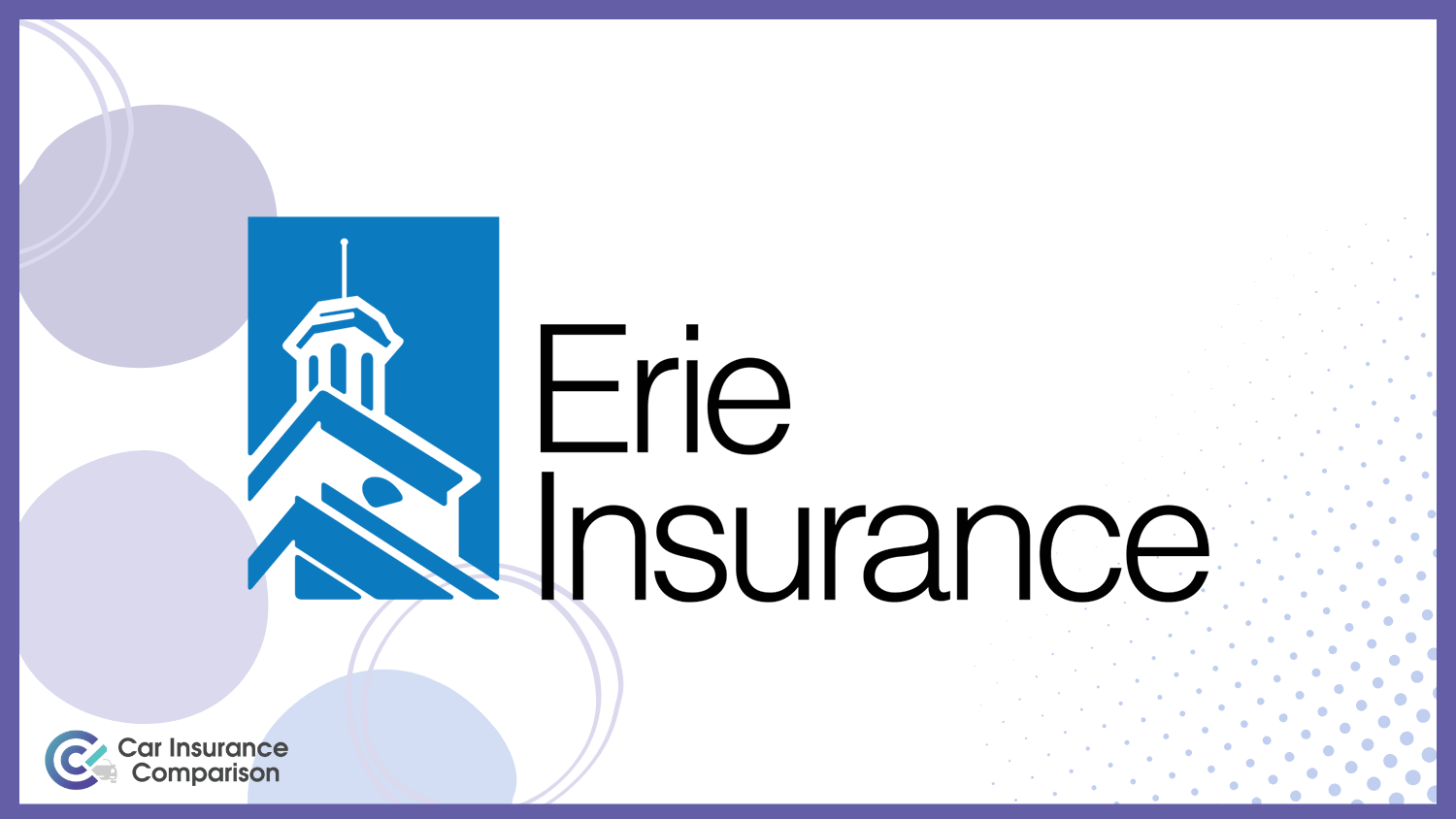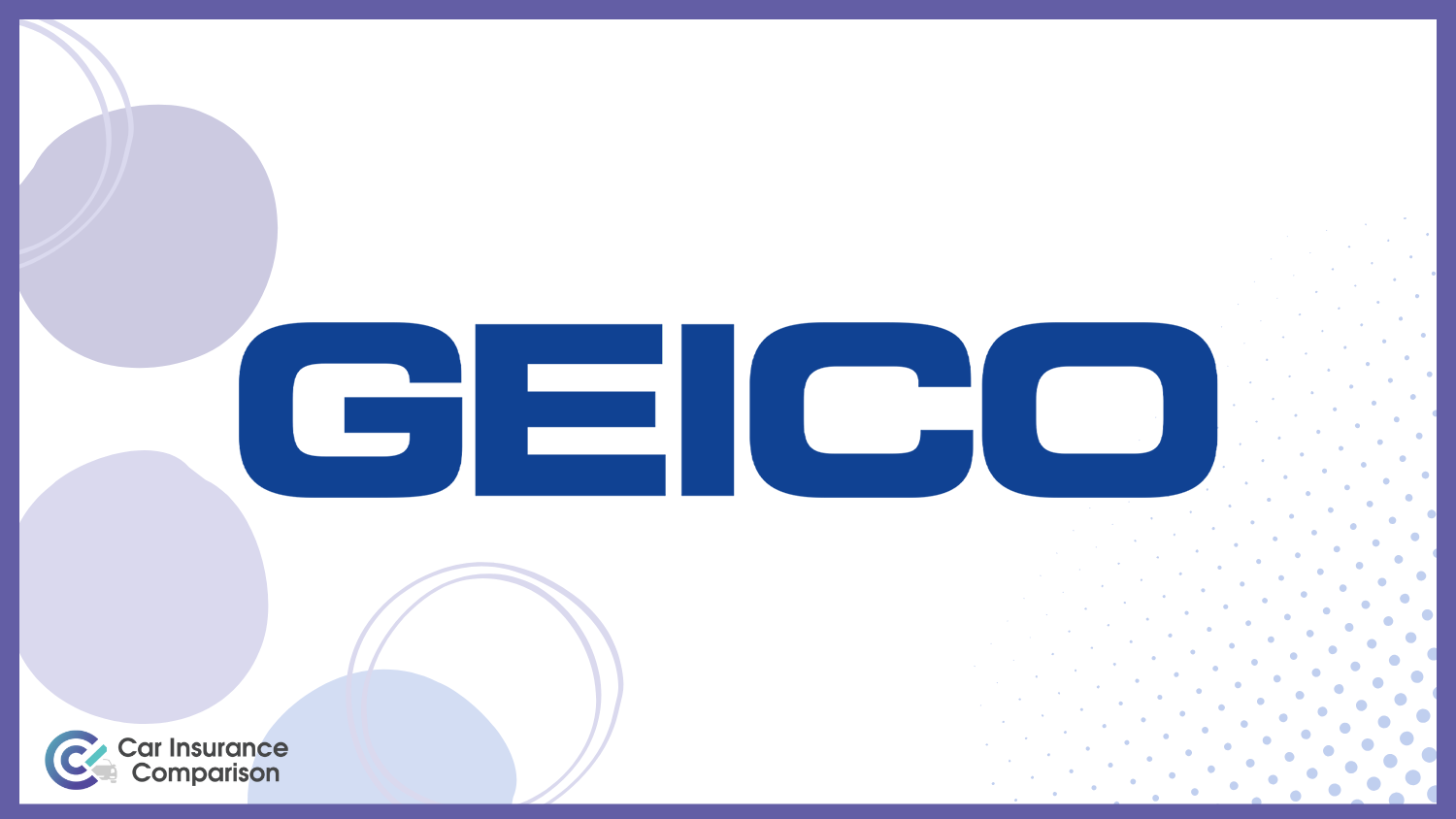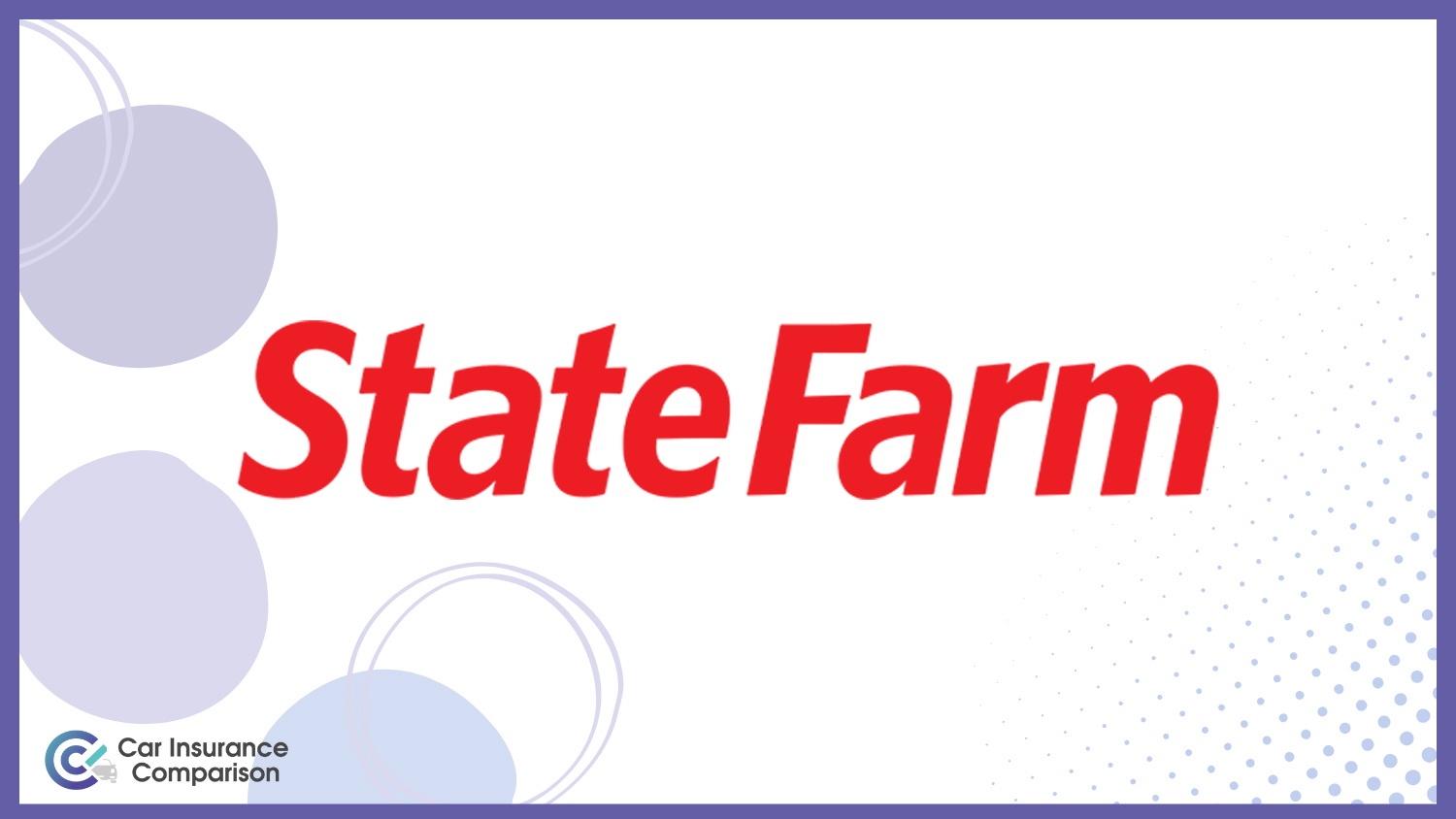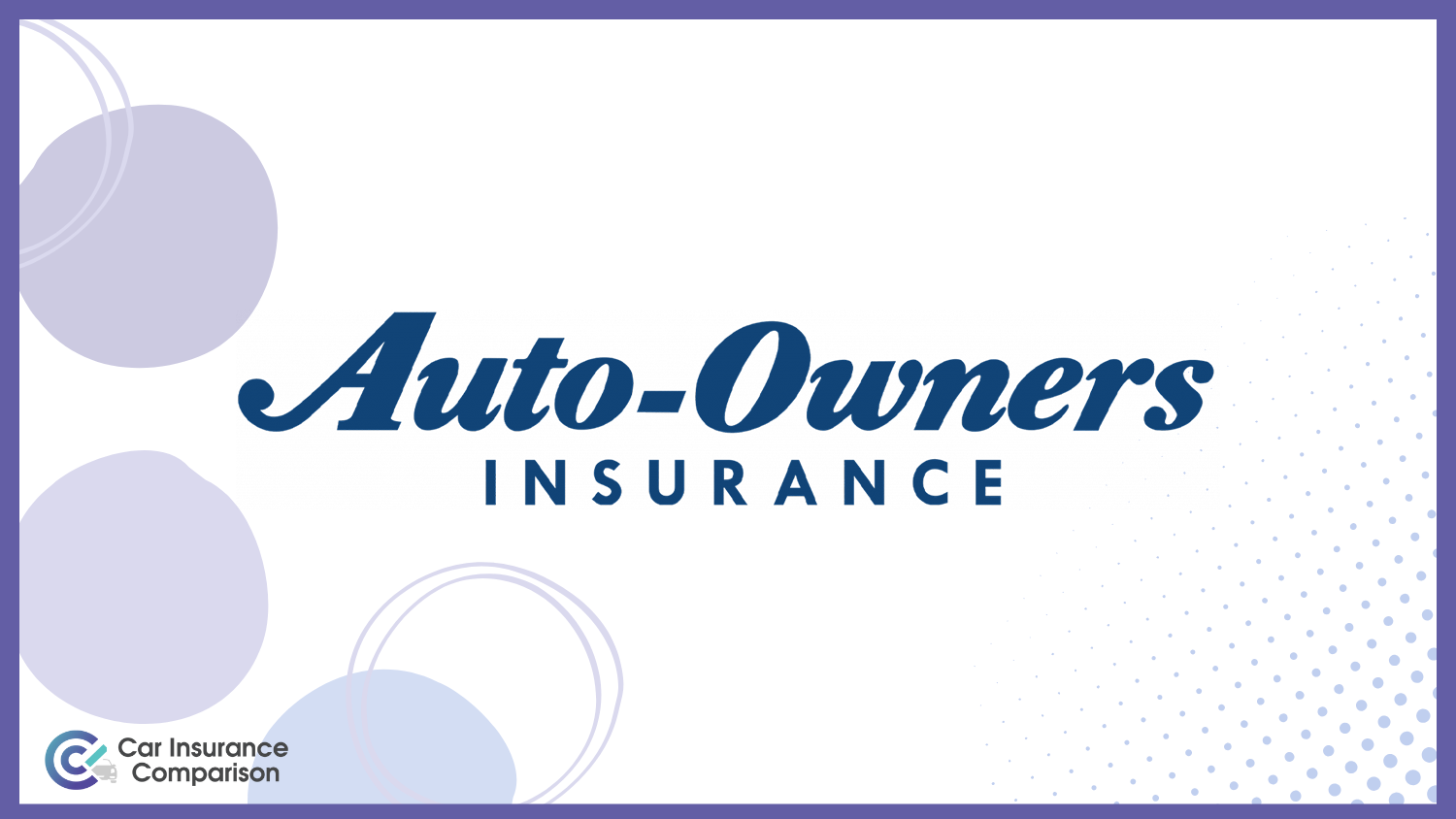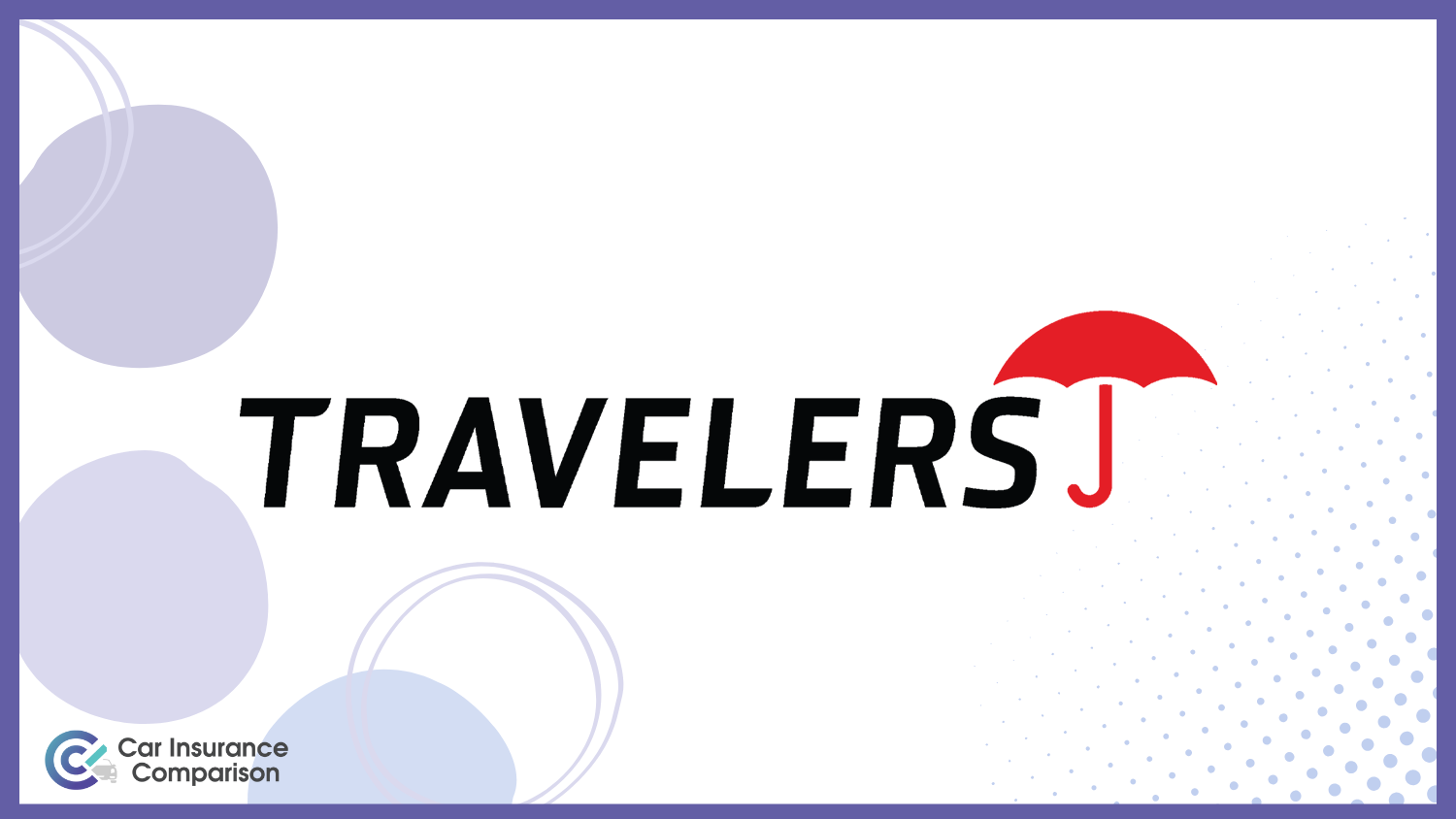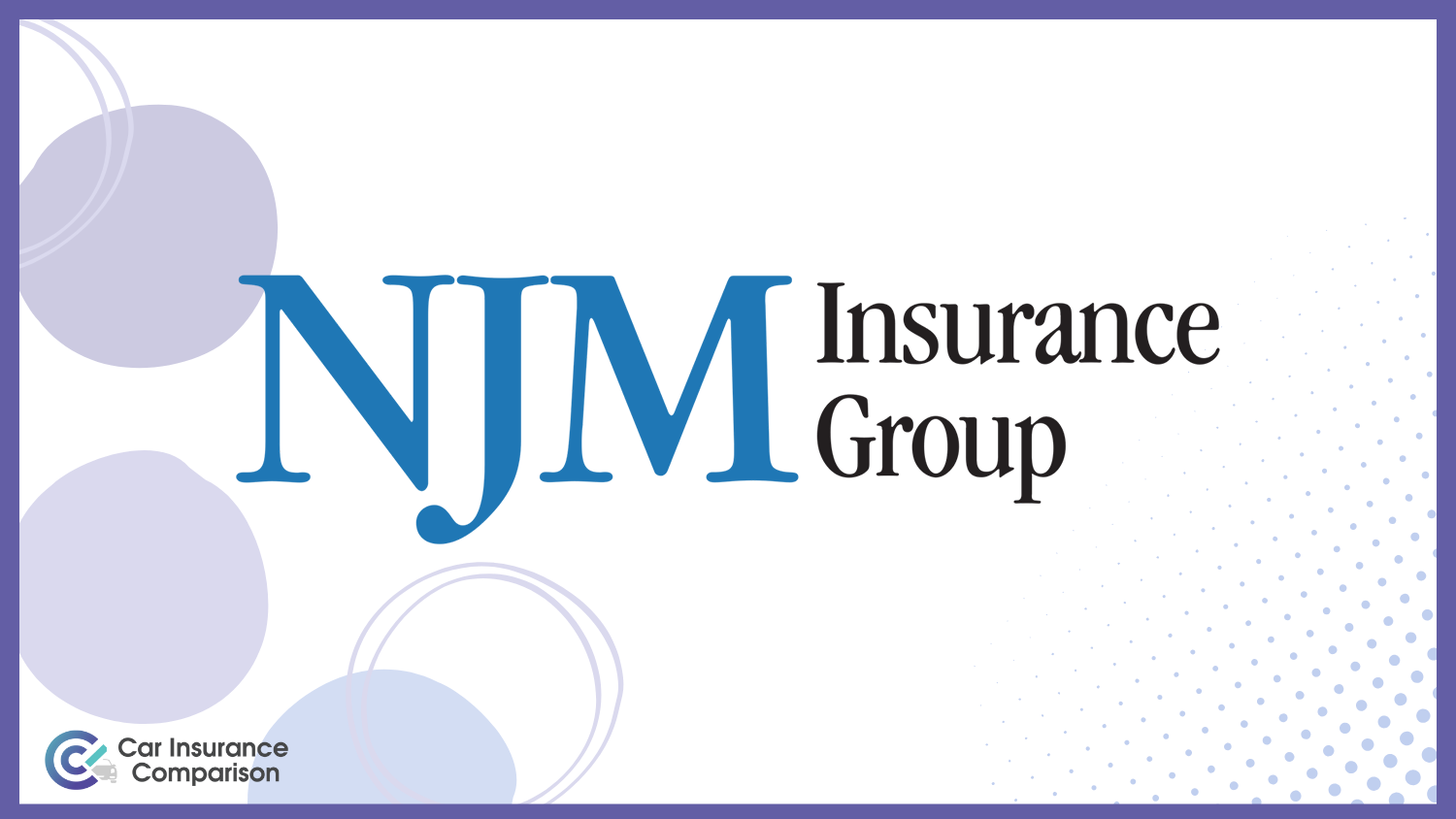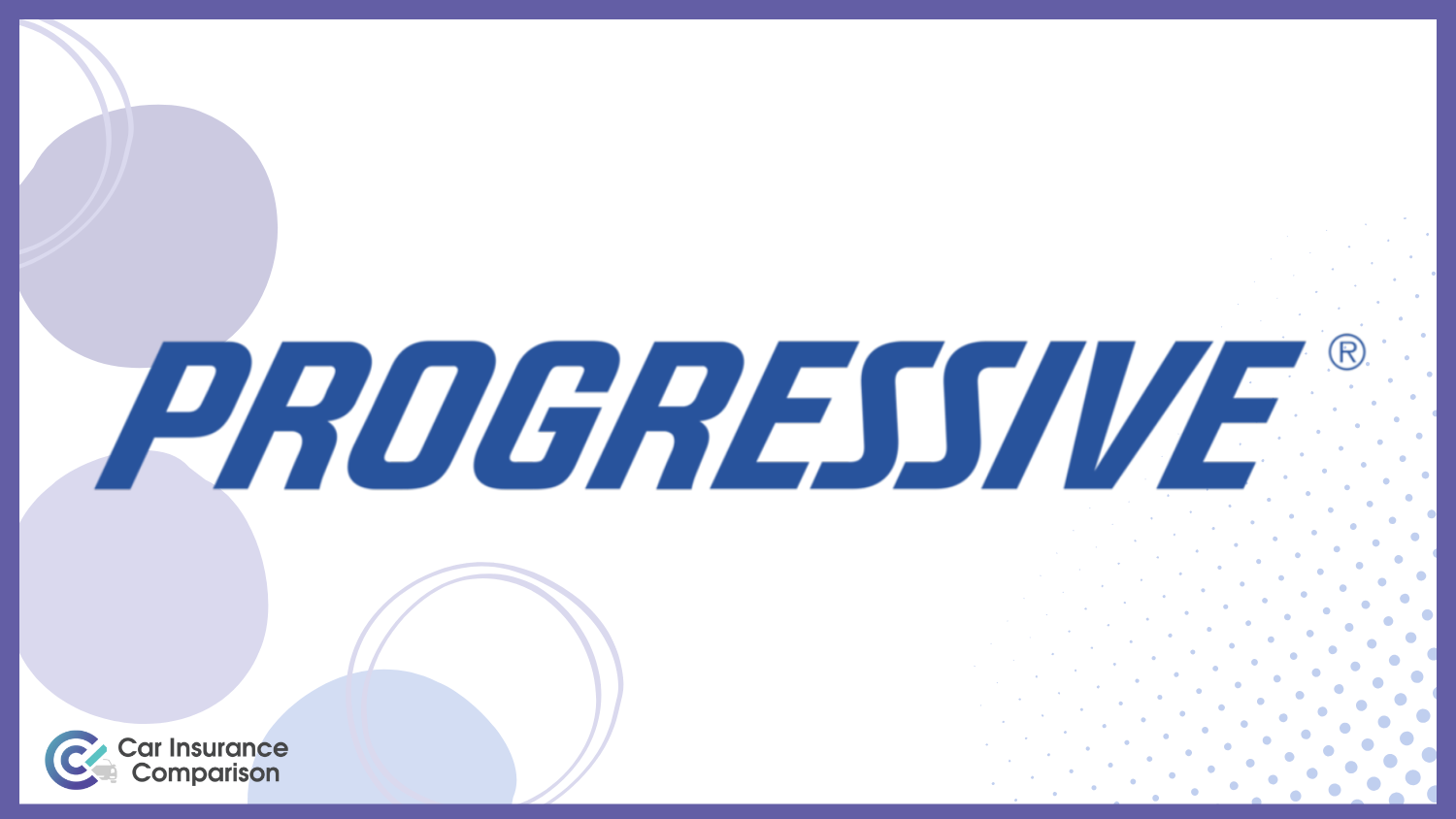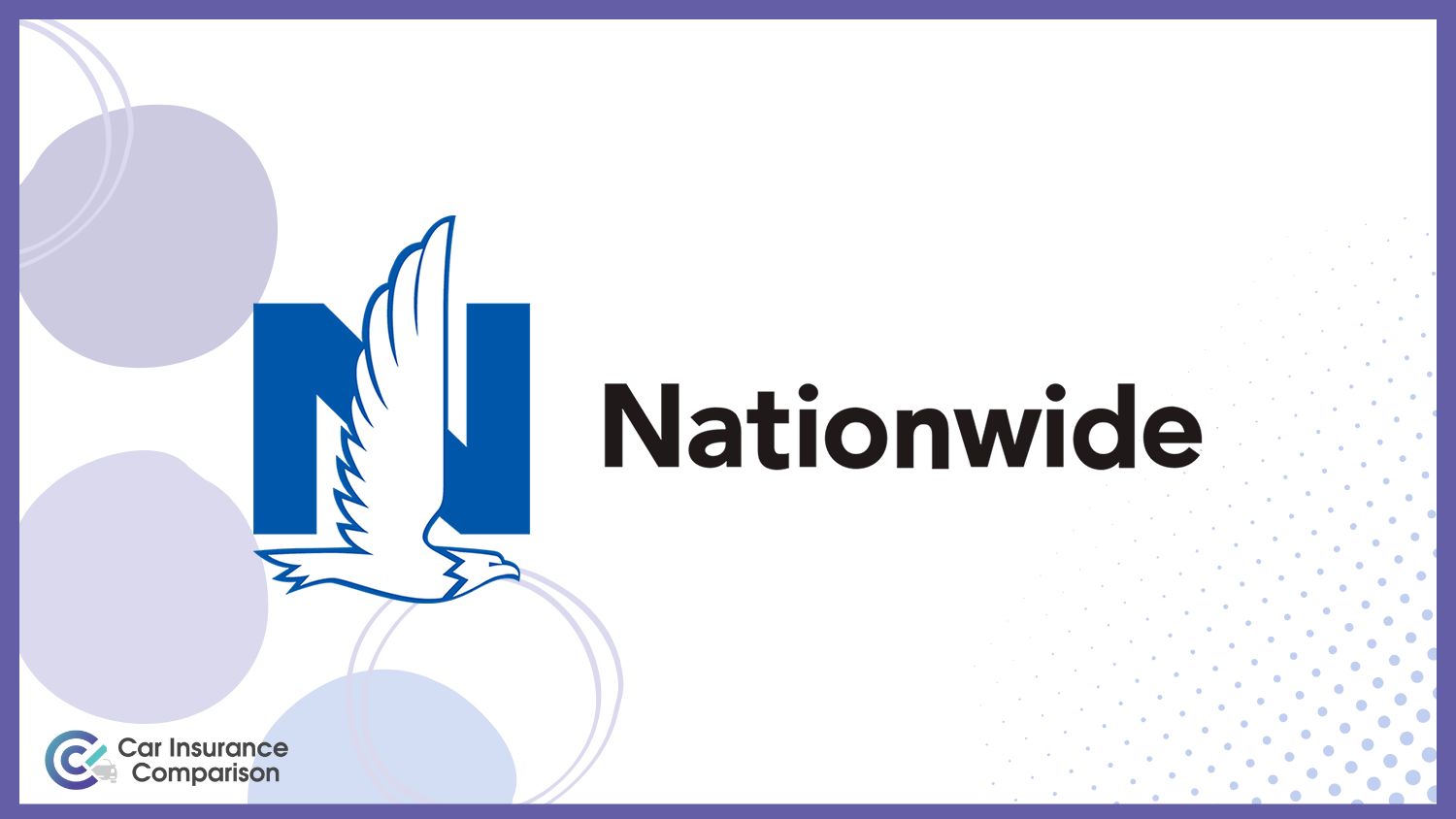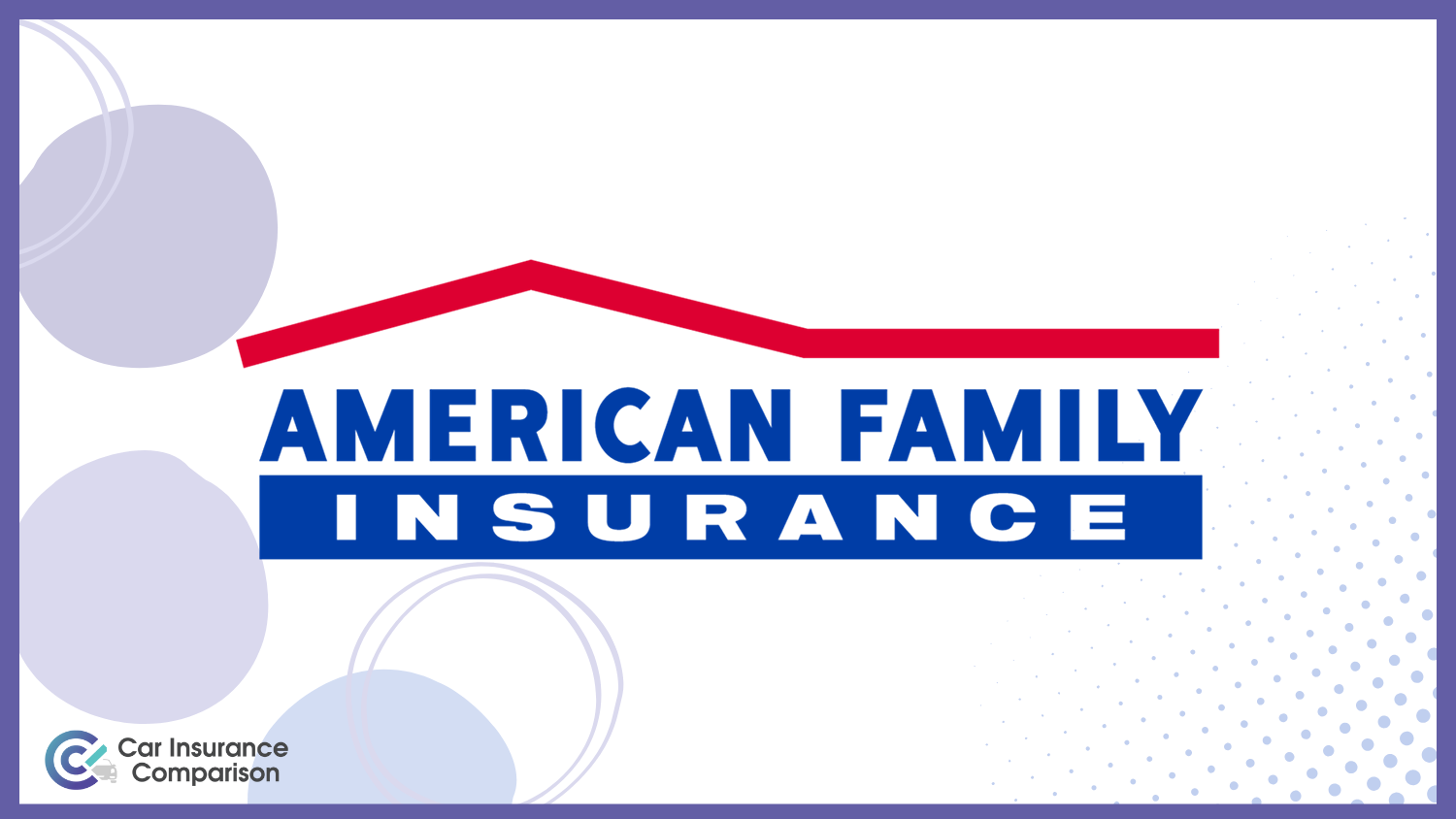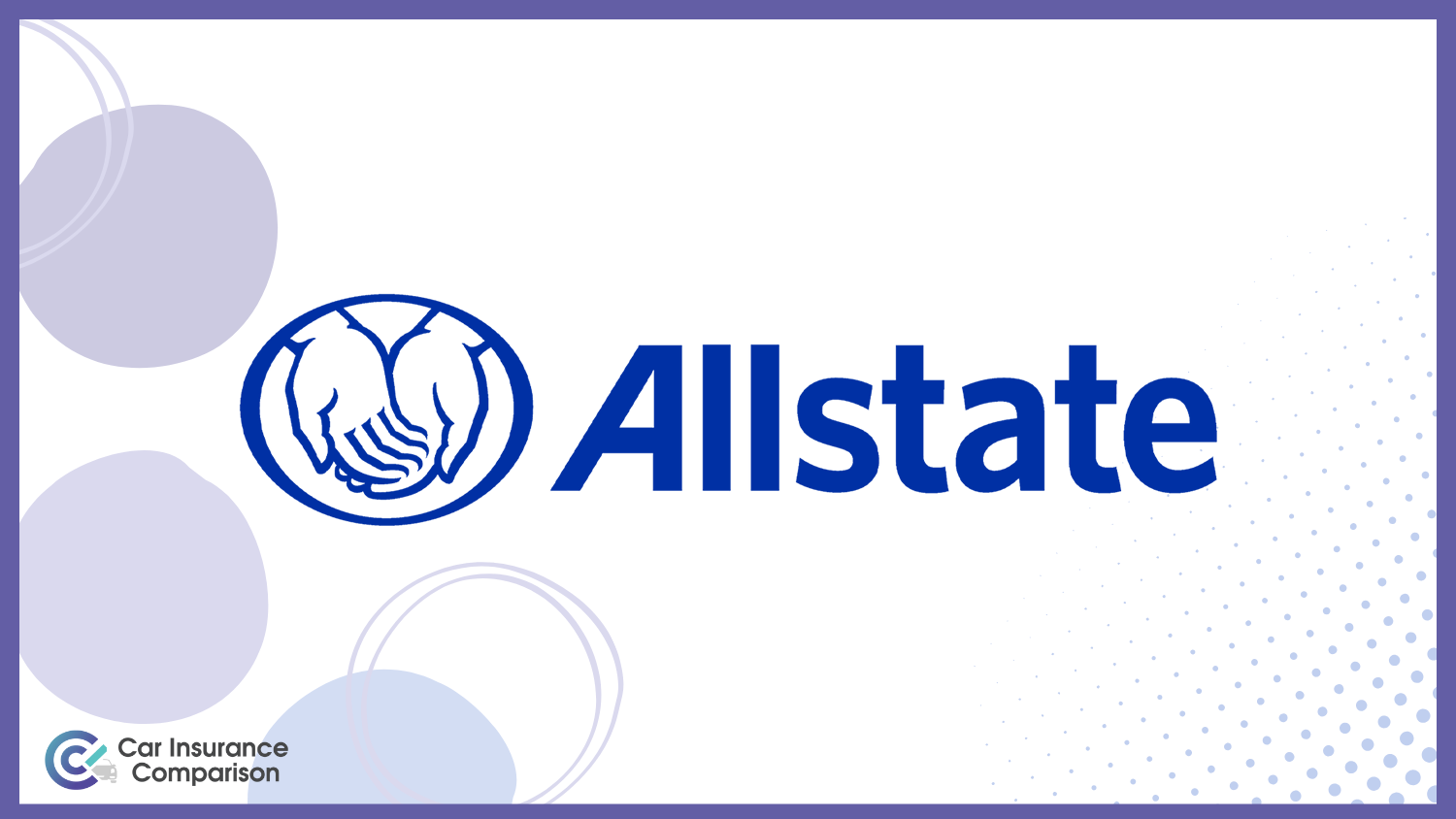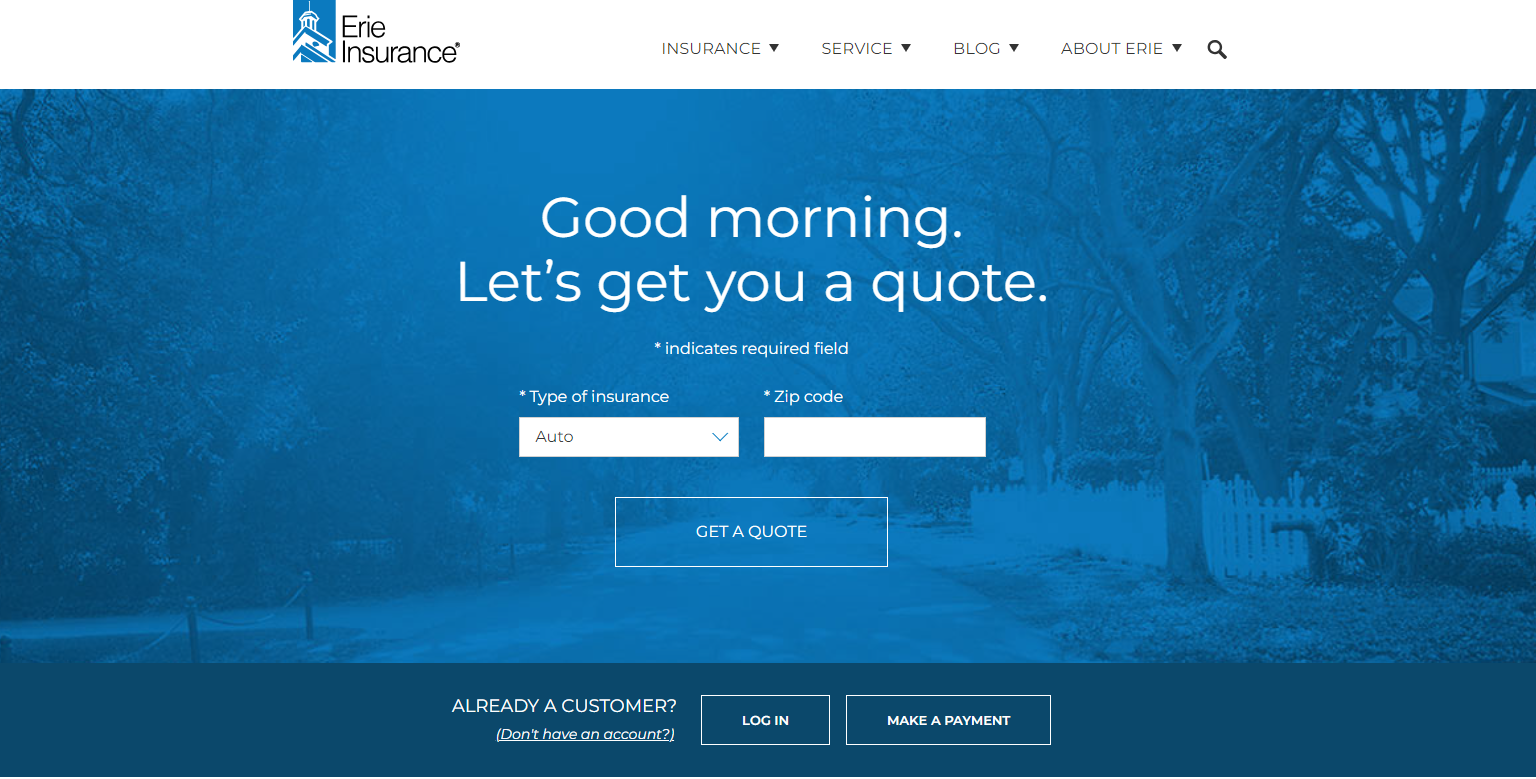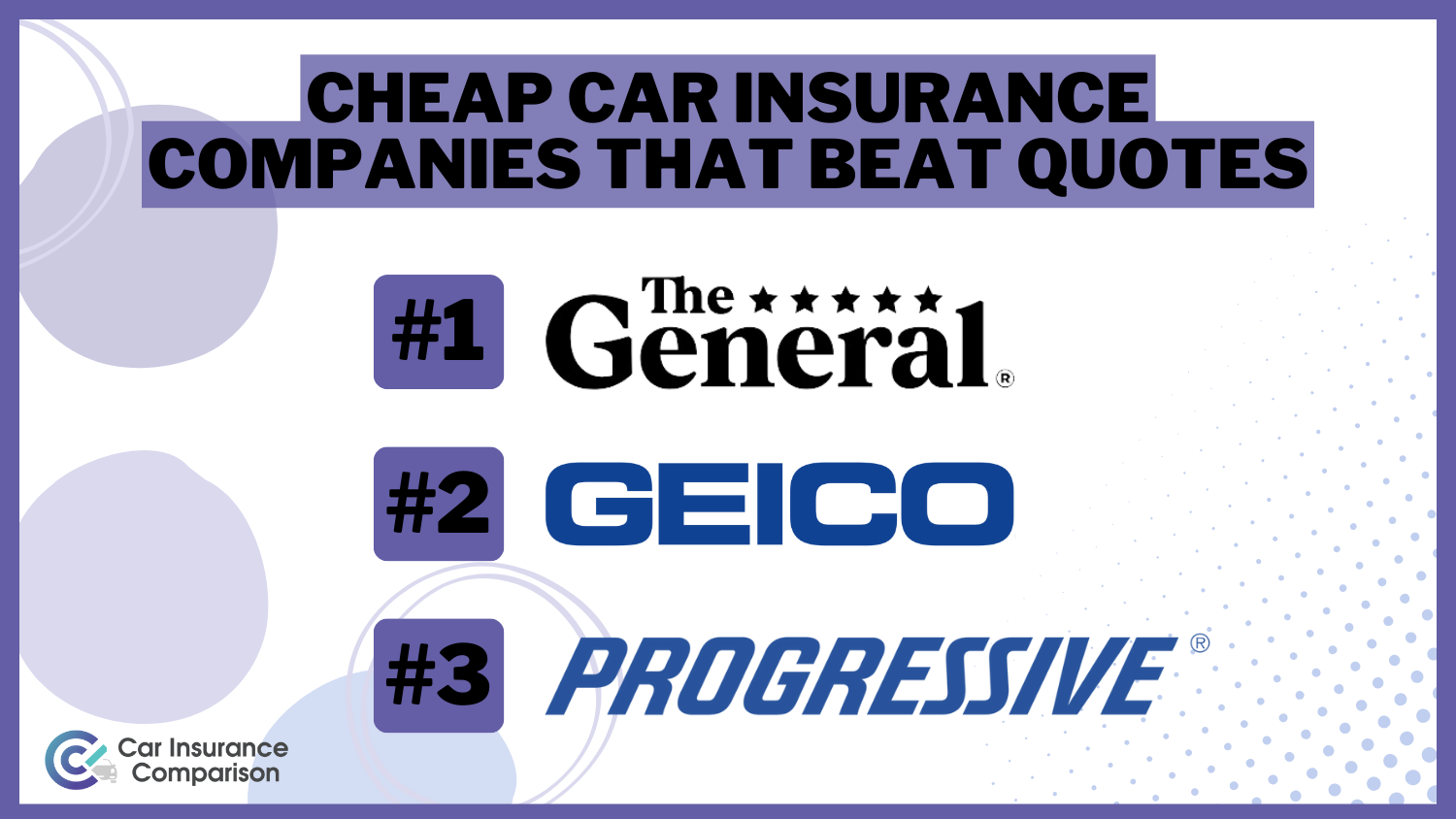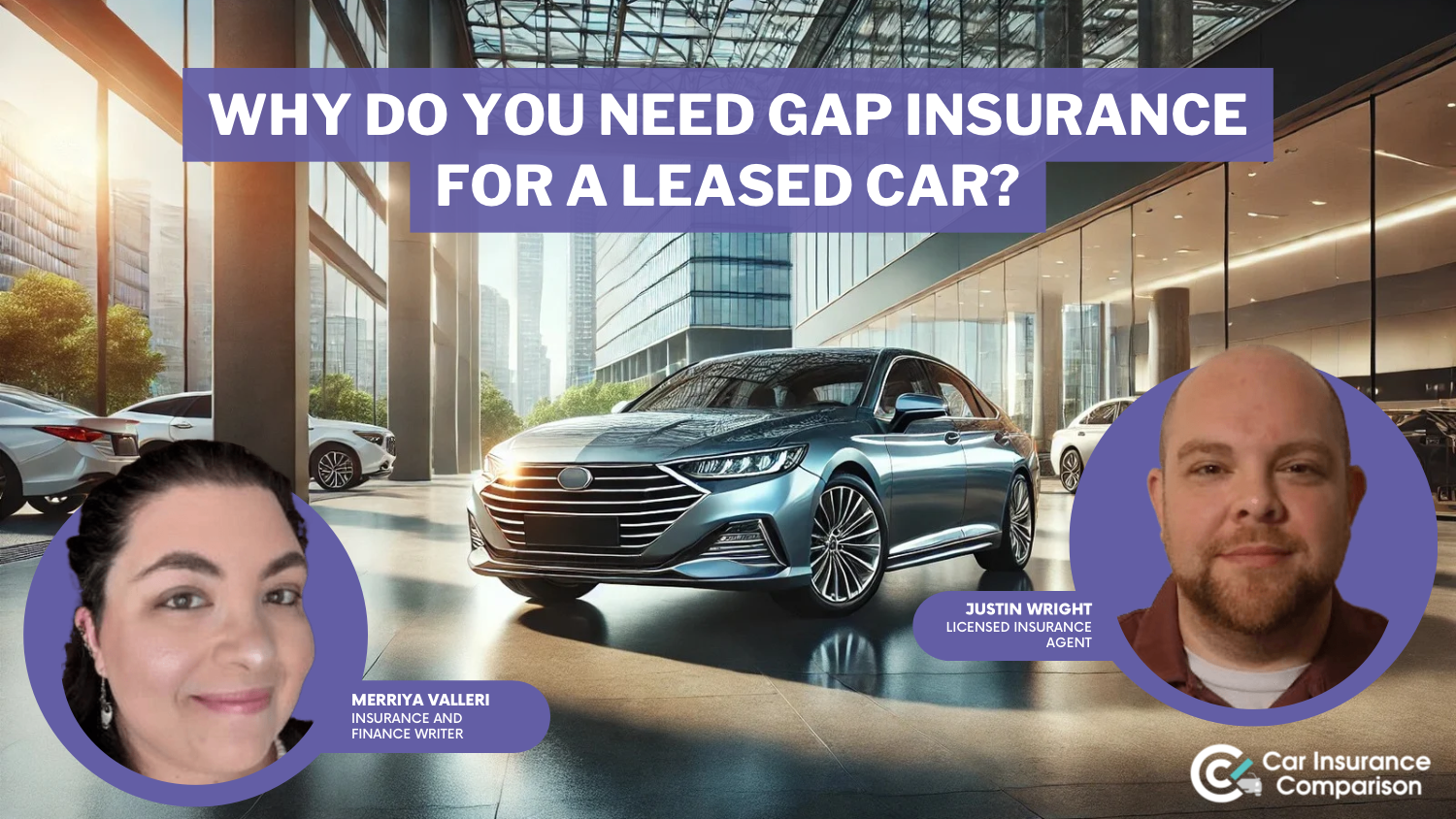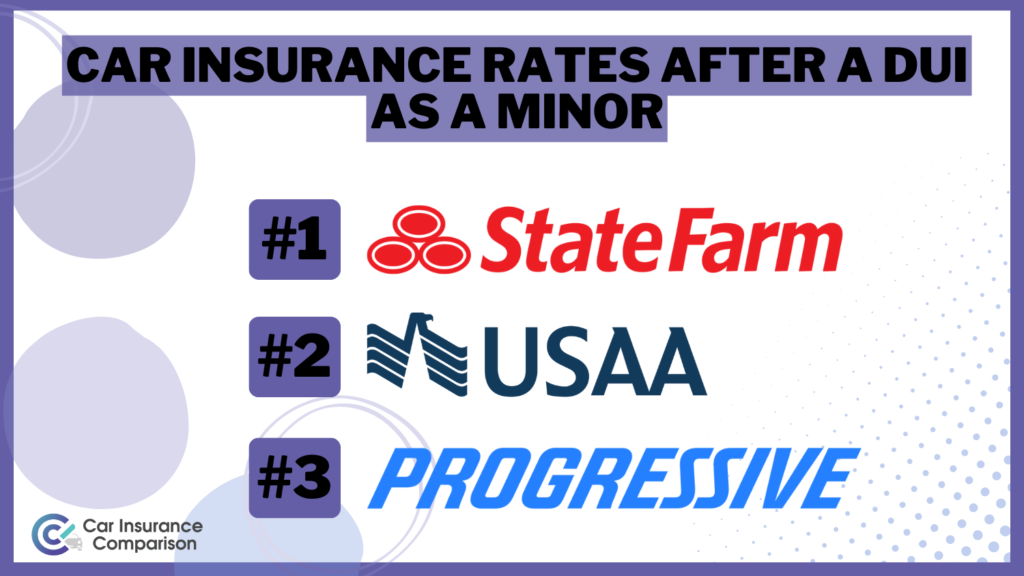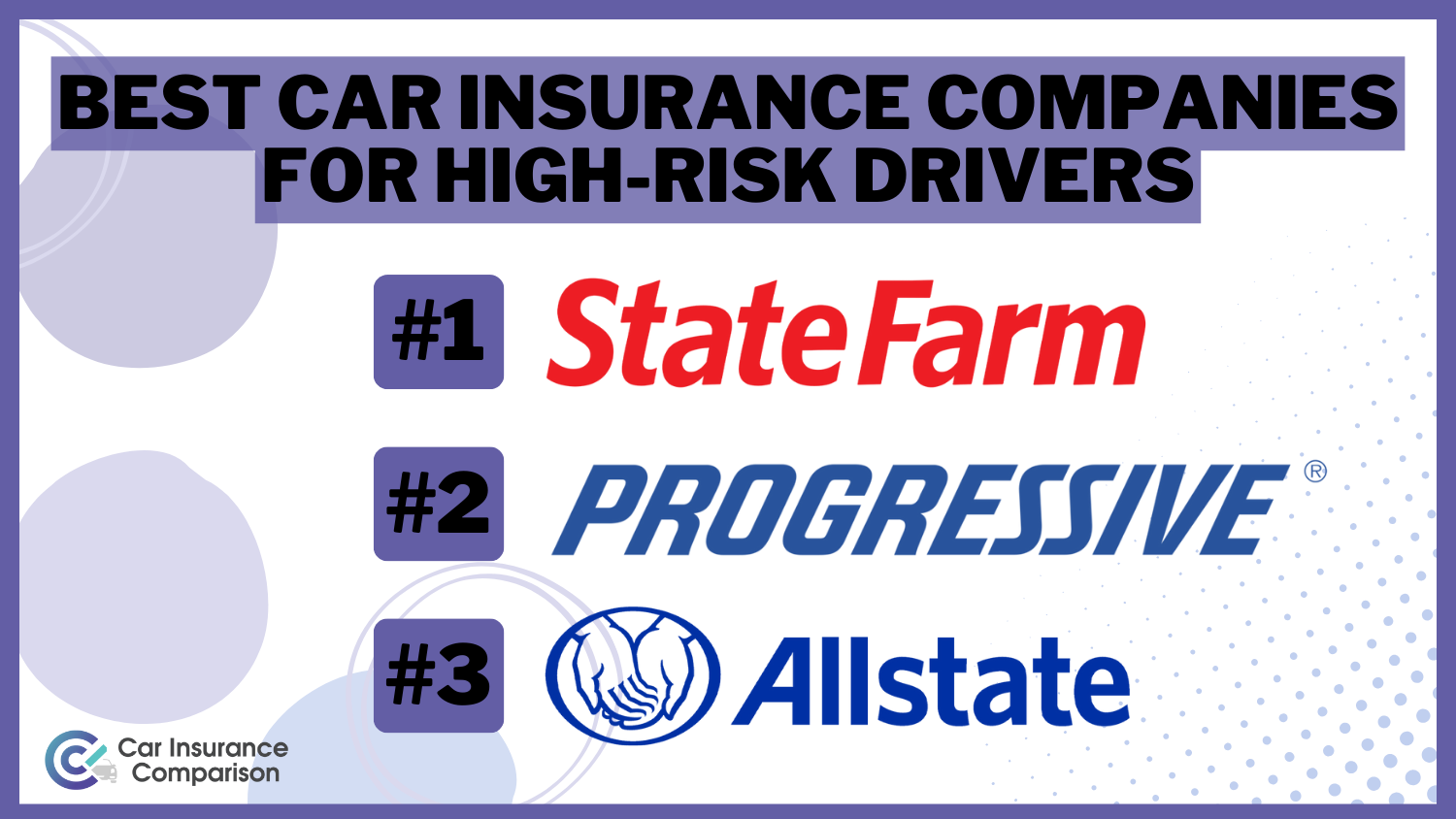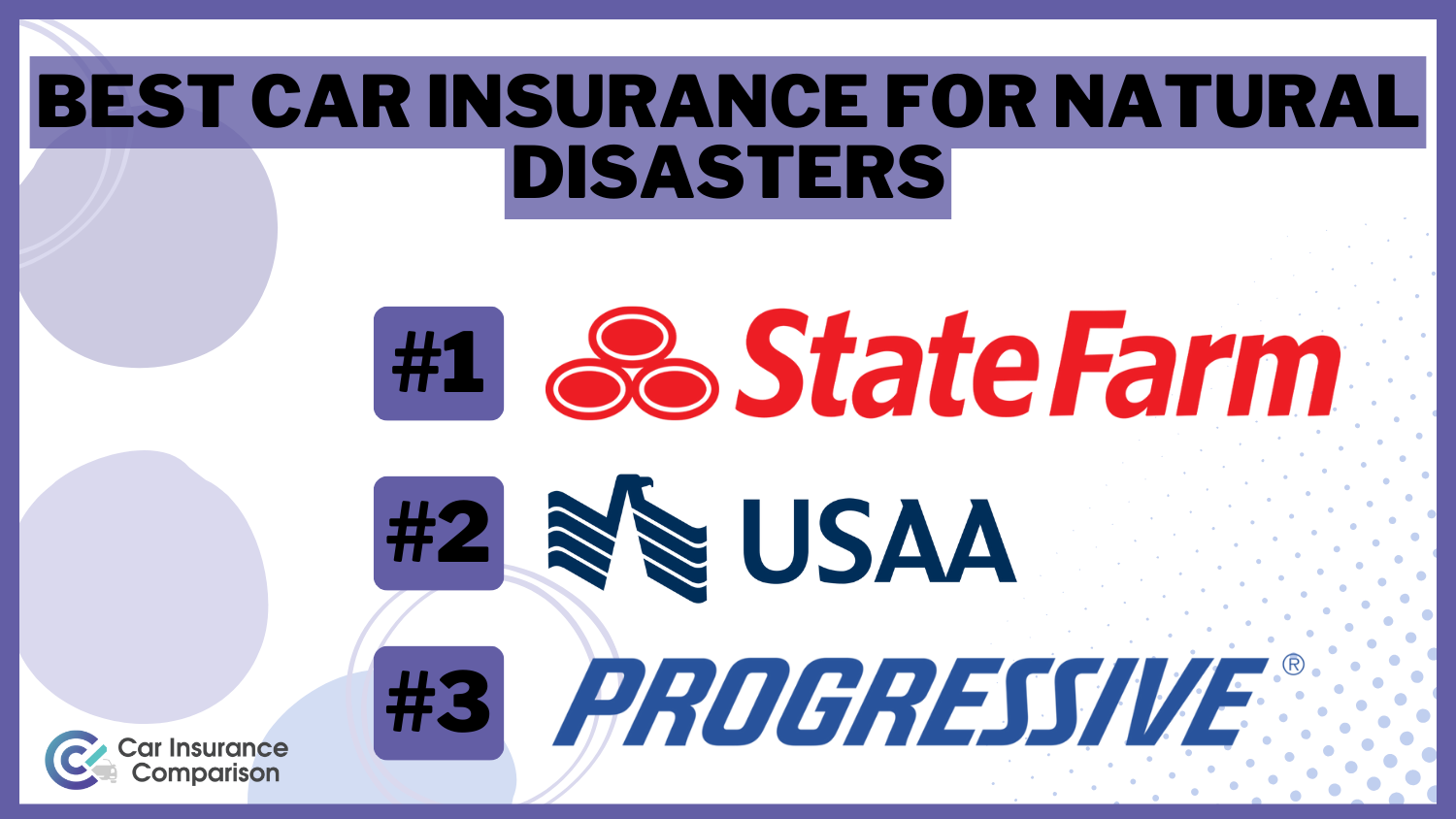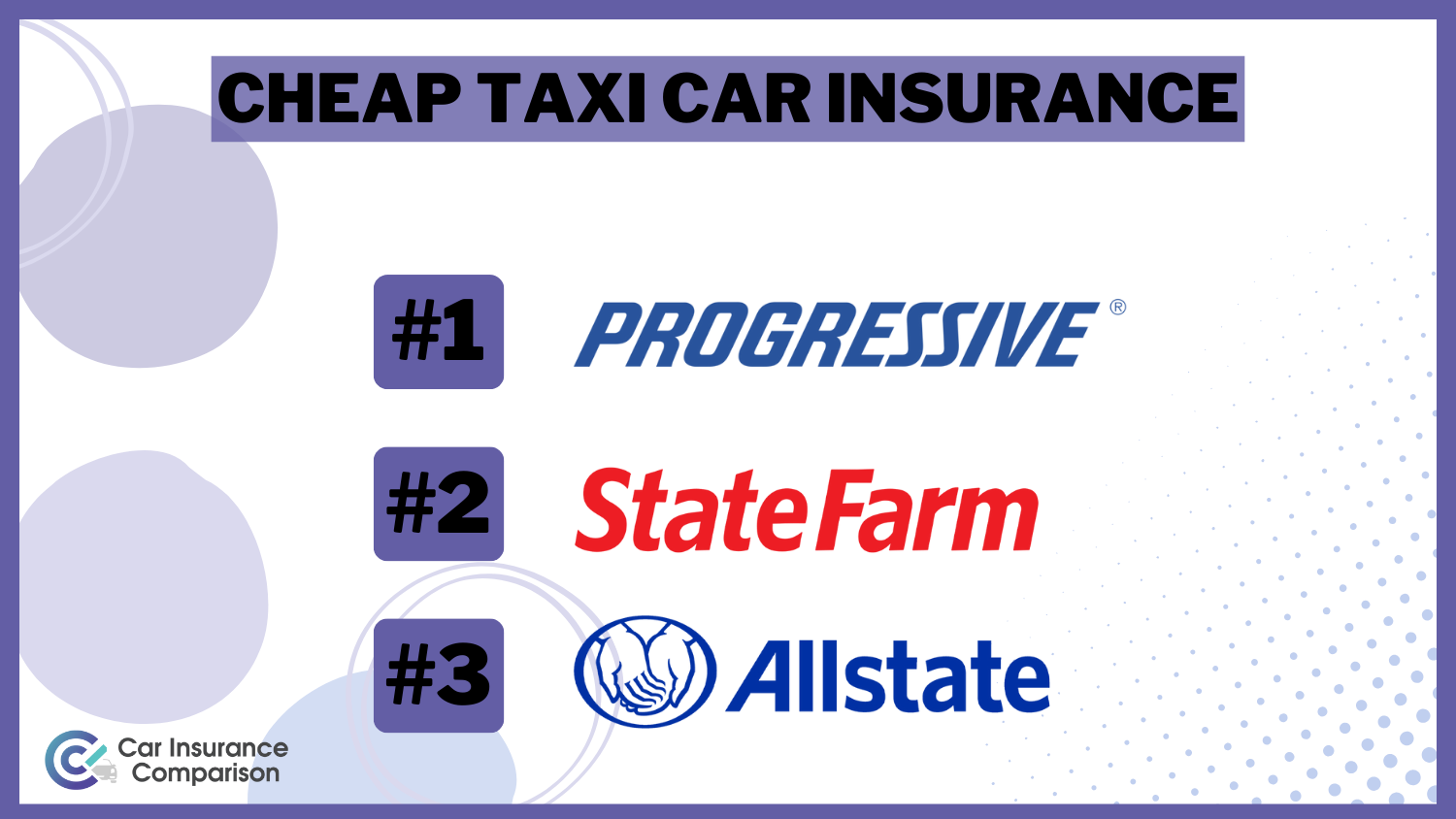Best Full Coverage Car Insurance in 2026 (Top 10 Companies Ranked)
The top three companies offering the best full coverage car insurance are Erie, Geico, and State Farm. The average full coverage insurance policy from Erie, our best pick overall, costs about $58 a month. You can get the best full coverage insurance rates by taking advantage of discounts and comparing quotes.
Read more Secured with SHA-256 Encryption





Table of Contents
Table of Contents


Licensed Insurance Agent
Brandon Frady has been a licensed insurance agent and insurance office manager since 2018. He has experience in ventures from retail to finance, working positions from cashier to management, but it wasn’t until Brandon started working in the insurance industry that he truly felt at home in his career. In his day-to-day interactions, he aims to live out his business philosophy in how he treats hi...
Brandon Frady


Certified Financial Planner
Joel Ohman is the CEO of a private equity backed digital media company. He is a CERTIFIED FINANCIAL PLANNER™, author, angel investor, and serial entrepreneur who loves creating new things, whether books or businesses. He has also previously served as the founder and resident CFP® of a national insurance agency, Real Time Health Quotes. He has an MBA from the University of South Florida. Joel...
Joel Ohman
Updated January 2025
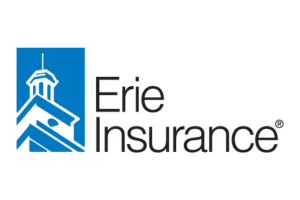
Company Facts
Full Coverage for Good Driver
A.M. Best Rating
Complaint Level
Pros & Cons

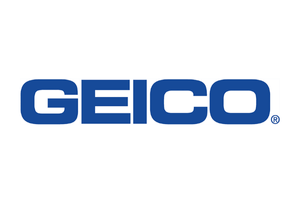
Company Facts
Full Coverage for Good Driver
A.M. Best Rating
Complaint Level
Pros & Cons


Company Facts
Full Coverage for Good Driver
A.M. Best Rating
Complaint Level
Pros & Cons

Our top three winners for the best full coverage car insurance are Erie, Geico, and State Farm.
Erie is our top pick overall, with full coverage insurance rates averaging $58 per month.
Our Top 10 Company Picks: Best Full Coverage Car Insurance
Company Rank Safe Driver Discount A.M. Best Best For Jump to Pros/Cons
#1 10-20% A+ Customer Satisfaction Erie
#2 25% A++ Digital Experience Geico
#3 30% A++ Nationwide Availability State Farm
#4 10-20% A++ Young Drivers Auto-Owners
#5 25% A++ Policy Bundling Travelers
#6 5-10% A+ Budget-Friendly NJM
#7 30% A+ Custom Discounts Progressive
#8 10% A+ Coverage Options Nationwide
#9 15% A Customer Service American Family
#10 22% A+ Claim Handling Allstate
While it’s never required by state law, drivers usually need full coverage to lease a car. It’s also good for people with new, expensive cars or living in high-risk areas.
If you’re shopping for car insurance, see which company can offer you the best full coverage car insurance.
With so many options available, it’s essential to choose a provider that offers the coverage you need at a price you can afford. See if you’re getting the best deal on full coverage car insurance by entering your ZIP code.
- Full coverage is not mandatory, but people with car loans or leases might need it
- At Erie, our top winner, the average full coverage policy costs about $58/mo
- You can save by finding discounts and comparing full coverage quotes
#1 – Erie: Top Overall Pick
Pros
- Excellent Customer Service: Erie’s representatives are highly responsive when assisting policyholders with inquiries, claims processing, and policy management.
- Competitive Rates: Erie offers the best full coverage car insurance rates, especially for drivers with speeding tickets.
- Good Coverage Options: Erie provides a diverse range of coverage options, including full coverage to suit different needs (Read more: Erie Car Insurance Review).
Cons
- Limited Availability: Erie operates mostly in the Mid-Atlantic and Great Lakes regions, so it may not be an option for everyone.
- Fewer Online Features: Erie’s online tools and mobile app may be less comprehensive compared to larger insurers.
Free Insurance Comparison
Compare Quotes From Top Companies and Save
Secured with SHA-256 Encryption
#2 – Geico: Best for Affordability
Pros
- Affordable Rates: Geico offers the best full coverage car insurance for seniors. Explore Geico’s rates in our Geico car insurance review.
- Strong Financial Stability: Backed by its parent company Berkshire Hathaway, Geico has a solid foundation for long-term stability.
- Robust Digital Platforms: Geico’s user-friendly website and mobile app make it easy to manage policies and file claims.
Cons
- Limited Agent Interaction: Geico primarily operates online and over the phone, so in-person agent support may be limited.
- Potential for Rate Increases: While Geico initially offers competitive rates, drivers with bad driving records and claims history may experience rate increases over time.
#3 – State Farm: Best for Personalized Touch
Pros
- Extensive Agent Network: With thousands of agents nationwide, State Farm policyholders can benefit from face-to-face interactions and expert advice.
- Solid Financial Reputation: According to our State Farm car insurance review, the company has earned high ratings from leading credit rating agencies like A.M. Best and S&P Global.
- Multiple Policy Options: State Farm offers a comprehensive list of insurance products beyond auto insurance, including homeowners, renters, life, and health insurance, among others.
Cons
- Limited Online Tools: Its online platform may not offer the same breadth of features and functionalities as some of its competitors.
- Lengthy Claims Process: Some customers have reported longer processing times for claims with State Farm compared to other insurers.
#4 – Auto-Owners: Best for Efficient Claims Process
Pros
- Customizable Policies: You can select from a wide range of coverage options, including liability, collision, comprehensive, uninsured/underinsured motorist, and more.
- High Financial Ratings: Auto-Owners holds a rating of A++ (Superior) from AM Best, suggesting the company’s robust financial standing within the industry.
- Claims Satisfaction: Auto-Owners car insurance reviews praise the company for its efficient claims processing and excellent customer satisfaction.
Cons
- Limited Availability: Auto-Owners operates in fewer states compared to some larger insurers, which may limit access to full coverage in other areas.
- Higher Premiums: Some customers may find that Auto-Owners’ premiums are higher than average, particularly if they do not qualify for certain discounts. Learn how to get Auto-Owners car insurance quotes.
Free Insurance Comparison
Compare Quotes From Top Companies and Save
Secured with SHA-256 Encryption
#5 – Travelers: Best for Comprehensive Coverage
Pros
- Comprehensive Coverage: Travelers offers a wide range of coverage options for auto, home, renters, and umbrella insurance. Get familiar with Travelers’ coverage options in our Travelers car insurance review.
- Multi-Policy Discounts: Travelers offers discounts for customers who bundle multiple insurance policies, such as auto and home insurance.
- Convenient Mobile App: Travelers’ mobile app allows customers to manage their policies, make payments, file claims, and access important documents from anywhere.
Cons
- Less Discounts: While Travelers does offer multi-policy discounts, it may have less extensive discount offerings, compared to other insurers, potentially limiting savings opportunities.
- Mixed Customer Reviews: While Travelers has a generally positive reputation, some customers have reported dissatisfaction with claims handling or premium increases over time.
#6 – NJM: Best for Dividend Policy
Pros
- Dividends for Policyholders: NJM policyholders may be eligible for dividends, which can result in additional savings over time.
- Customer Satisfaction: NJM is highly regarded for its exceptional customer service and claims handling, often receiving high customer satisfaction ratings in J.D. Power studies.
- Fewer Customer Complaints: NJM’s customer complaint index is well below the industry average, which shows that customers have little to complain about.
Cons
- Limited availability: NJM primarily serves customers in New Jersey and Pennsylvania, so coverage options may be restricted to residents of these states.
- Membership Requirement: NJM is a mutual insurance company, so you must meet certain eligibility criteria to become a member.
#7 – Progressive: Best for Safe Drivers Rewards
Pros
- Name Your Price Tool: Progressive offers a unique feature that allows customers to customize their coverage based on their budget. Learn more in this Progressive car insurance review.
- Usage-Based Program: Progressive’s Snapshot program rewards safe driving behavior by monitoring driving habits. Take advantage of more Progressive car insurance discounts.
- 24/7 Customer Support: Progressive provides round-the-clock customer support, including online chat, phone assistance, and a mobile app.
Cons
- Expensive for Some: High-risk drivers may find Progressive’s full coverage premiums to be higher compared to other insurers.
- Fewer Local Agents: Progressive primarily operates through online and phone channels, which may not be suitable for customers who prefer in-person interactions.
Free Insurance Comparison
Compare Quotes From Top Companies and Save
Secured with SHA-256 Encryption
#8 – Nationwide: Best for Safe Driving Incentives
Pros
- Vanishing Deductible: As you maintain a clean driving record without accidents or claims, Nationwide lowers your deductible amount, potentially saving you money in the event of a covered loss.
- Bundling Discounts: Nationwide offers attractive discounts for bundling multiple policies, such as auto and home insurance. Learn more about Nationwide car insurance discounts.
- On Your Side® Review: This complimentary insurance review allows Nationwide customers to sit down with an insurance agent to evaluate their current coverage and identify any gaps or potential savings opportunities.
Cons
- Limited Availability of Some Features: Certain features like the Vanishing Deductible may not be available in all states.
- Wear and Tear Exclusions: Nationwide’s policies typically do not cover normal wear and tear, mechanical breakdowns, or damage resulting from lack of maintenance.
#9 – American Family: Best for Customer Loyalty Rewards
Pros
- Personalized Coverage: American Family offers customizable coverage options to suit individual needs and budget. Get more information in our American Family car insurance review.
- Loyalty Discounts: American Family rewards long-term customers with loyalty discounts, potentially reducing premiums over time.
- Innovative Technology: From convenient online account management tools to a mobile app that makes it easy to file claims and access policy information on the go.
Cons
- Availability Varies: American Family operates primarily in the Midwest and certain other regions, so full coverage may be limited for customers outside these regions.
- Premium Pricing: Higher coverage limits and additional benefits, such as roadside assistance can contribute to higher premium costs.
#10 – Allstate: Best for Long-Standing Presence
Pros
- Name Recognition: Allstate is a well-known insurance company with a long-standing presence and strong reputation for reliability and customer service (Read more: Allstate Car Insurance Review).
- Extensive List of Coverages: In addition to standard coverage for liability, collision, and comprehensive, Allstate provides additional features such as accident forgiveness and new car replacement.
- Innovative Tools: Features such as Allstate Drivewise reward safe driving behavior and protect against premium increases after filing a claim.
Cons
- Quite Expensive: Allstate’s premiums are some of the highest from all the companies we’ve analyzed, especially for full coverage policies.
- No Affinity or Group Discount: Members of certain organizations may find that they can obtain lower rates with other insurers that offer this type of discount.
Free Insurance Comparison
Compare Quotes From Top Companies and Save
Secured with SHA-256 Encryption
Full Coverage Insurance Costs
The national average for full coverage is about $166 a month, which is about $100 more than what minimum insurance costs. However, your rates can vary significantly between companies due to your unique situation.
To get an idea of how much full coverage costs, consider the average rates for some of the top car insurance companies in the U.S. below.
Car Insurance Monthly Rates by Provider & Coverage Level
Insurance Company Full Coverage Minimum Coverage
$160 $61
$117 $44
$87 $33
$58 $22
$80 $30
$115 $44
$101 $33
$105 $39
$86 $33
$99 $37
As you can see, Erie, Geico, and State Farm offer some of the best rates for full coverage car insurance. You should always compare full coverage car insurance, though, since some factors can change which company is your cheapest option.
For example, drivers with low credit scores might find a cheaper quote at Erie.
Liability vs. Full Coverage Car Insurance Costs
Although it offers valuable protection, full coverage costs more than the minimum car insurance required in each state. Check below to see how much more full coverage costs than minimum insurance in your state.
Commercial Car Insurance Monthly Rates by Provider and State
| Company | California | Florida | Georgia | Illinois | Michigan | New York | North Carolina | Ohio | Pennsylvania | Texas |
|---|---|---|---|---|---|---|---|---|---|---|
| $199 | $183 | $165 | $176 | $406 | $147 | $169 | $120 | $148 | $201 | |
| $138 | $188 | $124 | $114 | $204 | $137 | $82 | $62 | $108 | $176 | |
| $167 | $227 | $149 | $117 | $335 | $165 | $99 | $96 | $131 | $137 | |
| $101 | $89 | $61 | $47 | $99 | $78 | $69 | $59 | $68 | $105 | |
 | $216 | $161 | $263 | $76 | $424 | $200 | $82 | $106 | $219 | $178 |
 | $142 | $103 | $152 | $93 | $257 | $164 | $111 | $114 | $86 | $154 |
| $132 | $153 | $115 | $89 | $152 | $96 | $32 | $85 | $148 | $121 | |
| $108 | $99 | $107 | $64 | $209 | $137 | $77 | $70 | $76 | $90 | |
| $122 | $166 | $110 | $87 | $183 | $175 | $99 | $63 | $75 | $101 | |
| $74 | $47 | $71 | $62 | $107 | $85 | $44 | $41 | $57 | $62 |
You might notice that some states have much lower rates than others. This difference in rates is caused by a variety of factors, including insurance requirements, weather risks, crime rates, and traffic. For example, Michigan has some of the highest insurance rates because it requires more coverage. Learn more about Michigan car insurance.
What Full Coverage Car Insurance Covers
Full coverage auto insurance is a suite of products that offers relatively complete protection for your car. Although it doesn’t cover everything, full coverage protects your vehicle from the most common sources of damage. Full coverage consists of five types of vehicle insurance, which include the following:
- Liability Insurance: Liability auto insurance covers damage you cause to property and injuries to other drivers, passengers, and pedestrians. Most states require liability insurance, but it doesn’t cover your car.
- Collision Insurance: You need collision car insurance if you want help paying for your vehicle after an accident. Collision insurance covers your car, no matter who is at fault for the accident. It also covers you if you hit a stationary object, like a tree.
- Comprehensive Insurance: There’s a lot more that can damage your vehicle than accidents. Comprehensive car insurance covers damage from fire, weather, theft, vandalism, and animal contact.
- Uninsured/Underinsured Motorist Coverage: Although most states require coverage, not all drivers follow the law. Uninsured motorist coverage covers both medical bills and damage to your car when someone without insurance hits you.
- Medical Payments/Personal Injury Protection (PIP): Bills after a car accident can get expensive, but medical payments and personal injury protection insurance can help. The type of medical expense insurance you can buy depends on your state.
As you can see, full coverage insurance for your car protects against most of what the road can throw at it. However, it doesn’t cover everything. You might need to buy add-ons for additional coverage.
What Full Coverage Insurance Does Not Cover
Although full coverage is fairly exhaustive, it doesn’t cover everything. You’ll need an alternative option if you want coverage for the following:
- Roadside Assistance: Full coverage does not include emergency roadside assistance when you’re stranded on the side of the road. However, most companies offer the general roadside assistance as an add-on for your policy.
- Rental Cars: You’ll need to buy rental car reimbursement if you want your policy to pay for a temporary vehicle when yours is stuck in the mechanics (Read more: Compare Best Car Insurance Companies That Offer Insurance for Car Rental Businesses).
- Custom Parts and Equipment: Full coverage insurance protects the standard parts of your car. If you modify your car with special equipment, you’ll need custom parts and equipment insurance to cover them.
- Loan Coverage: When your car is totaled, your insurance company will pay for its value minus depreciation. Gap insurance pays the remainder if you owe more on your car loan than your vehicle is worth.
Most major insurance companies offer these add-ons, as well as several other options, to help you maximize the value of your policy. Not everyone needs full coverage, though. Many drivers can get by with their state’s minimum insurance requirements.
Free Insurance Comparison
Compare Quotes From Top Companies and Save
Secured with SHA-256 Encryption
Full Coverage vs. State Minimum Requirements
According to the Insurance Information Institute (III), except for Virginia and New Hampshire, all states require drivers to carry a minimum amount of insurance before driving or registering their cars. If you live in a state requiring car insurance, you’ll face steep consequences if you’re caught driving without insurance (For more information, read our “Compare New Hampshire Car Insurance Rates“).
Most states require drivers to carry liability insurance to pay for the damage they cause in an accident. Uninsured motorist and personal injury protection are also often required, though less commonly than liability coverage.
As previously noted, no state requires full coverage insurance but getting it’s not a bad idea if it fits your budget. However, if you only want minimum coverage, an insurance representative will know exactly what you need.
Who Needs Full Coverage Car Insurance
Although it’s not required by state law, there are plenty of reasons why you might need full coverage insurance. You should consider full coverage insurance if any of the following applies to you:
- You live in an area with high car theft or vandalism rates
- You live in a rural area where animal collision is likely
- Your daily commute involves heavy traffic
- Your home is in an area with extreme weather risks
- You have a new or expensive car
- You have a loan or lease on your vehicle
- You can’t afford to replace your car if it’s totaled or stolen
Full coverage might not be worth the cost if you own an older car outright. Insurance companies only pay for your car’s actual cash value, so your deductible and monthly payments might cost more than your policy would pay if your vehicle has a low value.
How to Save Money on Full Coverage Insurance
If you want full coverage car insurance but need to stay on a budget, there are plenty of ways to save. Try the following tips if you’re looking to save money on your full coverage insurance:
- Raise your deductible. Your car insurance deductible is the portion you pay for before your insurance kicks in. Most companies let you choose a higher deductible to lower your monthly rates, but remember that you’ll be financially responsible for a bigger bill after an accident.
- Choose the right coverage. You can select lower limits on your policy to keep your monthly rates down. Additionally, you should make sure to limit how many add-ons you buy.
- Look for discounts. Insurance companies offer car insurance discounts to help customers save. Most discounts are applied when you first sign up for a policy, but an insurance representative can check that you’re getting everything you should.
- Keep your driving record clean. One of the easiest ways to keep your rates low is to keep your driving record clean. Car insurance with a bad driving record can be much higher.
- Compare full coverage insurance quotes. Comparing car insurance quotes is the most important of everything that can help you save money. If you sign up for the first policy you look at, you’ll likely overpay.
Your insurance rates are based on various factors, and companies put a different emphasis on each. For example, drivers with low credit scores can pay up to 60% more for insurance, while people with higher scores see lower rates. Some companies are more forgiving of low credit scores, which is why comparing full coverage car insurance quotes is important.
Full Coverage Car Insurance Discounts
This table shows the various car insurance discounts available for full coverage insurance policies offered by different insurers.
As you can see, these discounts reward policyholders for factors such as safe driving, vehicle type, and policy bundling. Before purchasing the best full coverage insurance, make sure to inquire about available discounts to maximize your savings and secure the most affordable full coverage car insurance.
Read more: Engaged Couple Car Insurance Discounts
Free Insurance Comparison
Compare Quotes From Top Companies and Save
Secured with SHA-256 Encryption
Find the Best Full Coverage Auto Insurance Today
Although it’s not required by state law, full coverage offers valuable protection for your car. Full coverage costs more than the minimum insurance requirement in your state, but the cost might be worth it if your car is new or expensive.
Before you sign up for a car insurance policy, you should compare full coverage car insurance rates with as many companies as possible. Looking at the best full coverage insurance companies is the only way to find the best rates. You can also enter your ZIP code into our free comparison tool to start comparing rates now.
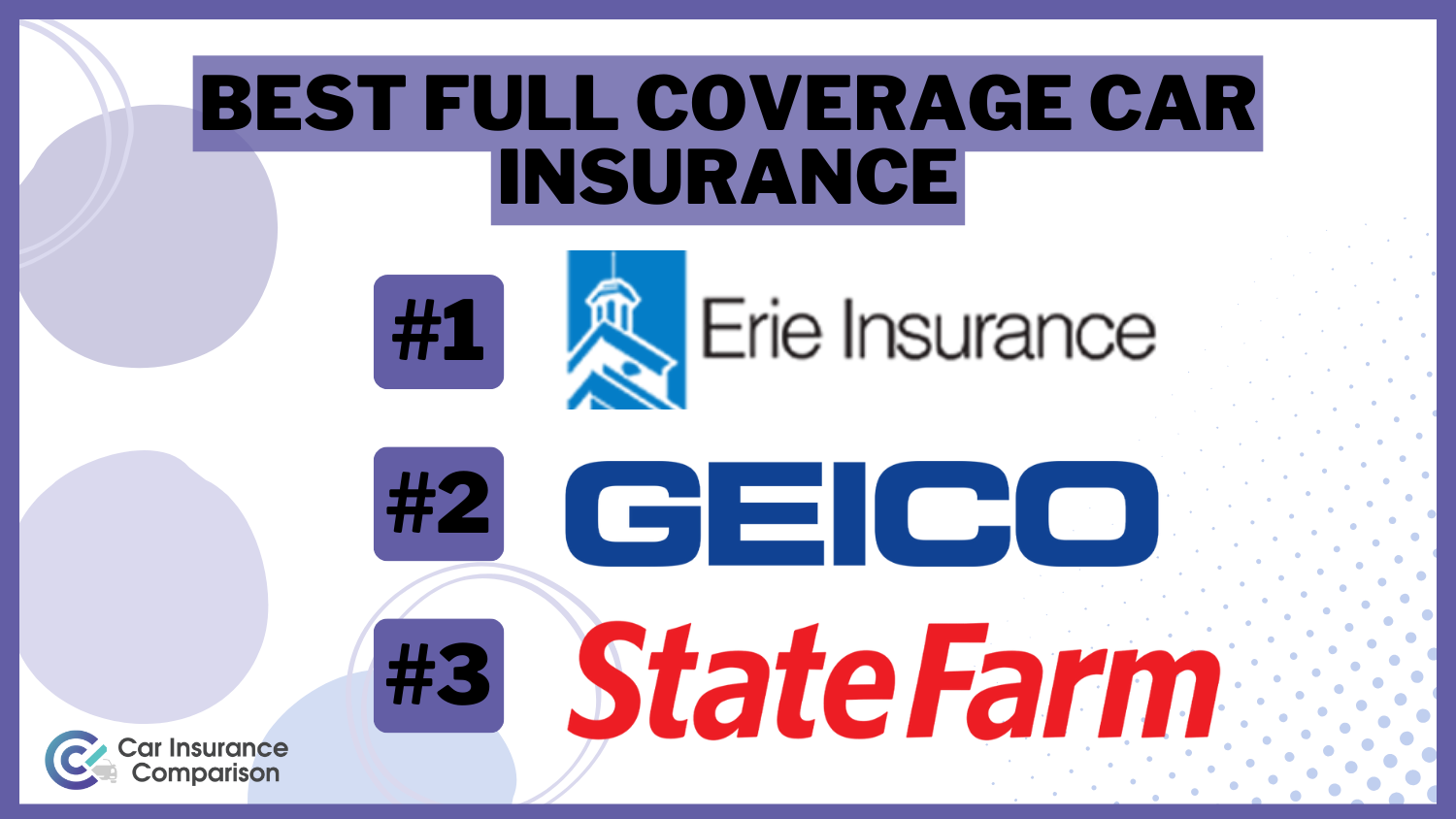
Frequently Asked Questions
How much does full coverage car insurance cost?
On average, full coverage insurance costs about $166 per month. However, rates can vary depending on factors such as your location and driving history.
What does full coverage auto insurance cover?
Full coverage insurance typically includes liability insurance, collision insurance, comprehensive insurance, uninsured/underinsured motorist coverage, and medical payments/personal injury protection.
What does full coverage insurance not cover?
Full coverage insurance does not cover roadside assistance, rental cars, custom parts and equipment, or gap insurance. These can be added as optional coverage.
Who needs full coverage car insurance?
While not required by law, full coverage insurance is recommended for those with new, expensive cars, people living in high-risk areas, and those leasing a vehicle.
How can I save money on full coverage insurance?
You can save money on full coverage insurance by raising your car insurance deductible, choosing the right coverage limits, looking for discounts, maintaining a clean driving record, and comparing quotes from different companies.
Who has the best full coverage insurance?
Erie, Geico, and State Farm are some of the companies that offer the best car insurance for full coverage.
Is it better to have full coverage?
Whether it’s worth having full coverage car insurance depends on various factors. Full coverage insurance typically includes both collision and comprehensive coverage, which can protect your vehicle in various scenarios such as accidents, theft, vandalism, and natural disasters.
If you own a newer or more expensive car, full coverage can cover the cost of repairs or replacement.
Is comprehensive the same as full coverage?
Comprehensive coverage protects your vehicle from damages that are not caused by a collision. It typically covers events such as theft, vandalism, fire, natural disasters, falling objects, and collisions with animals.
On the other hand, full coverage is a type of insurance policy that includes both collision and comprehensive coverage, in addition to liability coverage.
Discover if car insurance covers hitting a dog.
Where to get cheap full coverage auto insurance?
You can find cheap full coverage car insurance by shopping around and comparing quotes from multiple insurance companies.
In addition, many full coverage car insurance companies offer discounts if you bundle multiple policies, such as auto and homeowner’s insurance.
Enter your ZIP code to get personalized insurance quotes tailored to your needs and budget.
Get a FREE Quote in Minutes
Insurance rates change constantly — we help you stay ahead by making it easy to compare top options and save.




